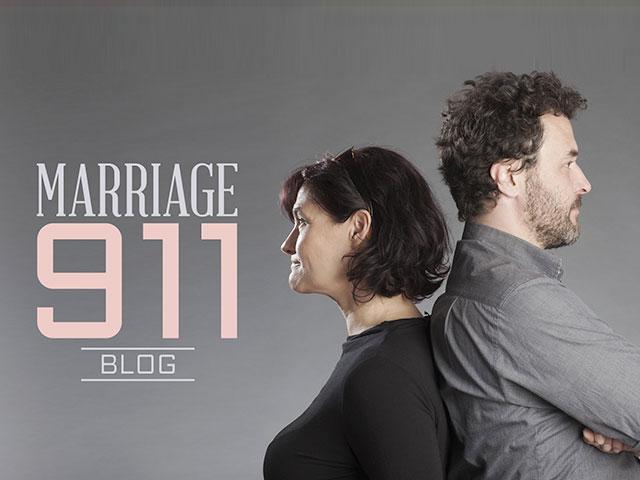Creating Emotional Protection in Your Marriage

“I don’t know why you don’t call your parents more often.”
“You need to talk to your boss for a raise.”
“You’re not doing it right.”
“Why do you treat your friends the way you do?”
Each of these sentences and questions seem straightforward enough. They are sentences and questions spoken on a daily basis between individuals. Each one has the power to make the other stiffen with tension.
Why?
Because each one is a violation of our emotional bubble. What do each one have to do with emotional safety and creating emotional protection in a relationship?
Consider that we each have an emotional bubble around us, not seen by others, but experienced by us. This bubble, much like a fence around a yard, contains all that we hold dear about us emotionally.
This unseen bubble holds what we believe, our values, our emotional life, intentions and many aspects of our personality. When others venture into that space uninvited, they’re an intruder, regardless of their role with me.
Let me offer an example.
Recently, a friend said the following to me:
“David. You really don’t need to be afraid of whether or not your manuscript is accepted by a publisher. If they do, they do. If they don’t, they don’t.”
While my friend meant well, having good intentions, I was anxious about my manuscript being accepted, and them telling me not to be anxious only aggravated my feelings.
Another example.
I told my wife, “You need to be firmer in talking to a colleague at work.”
This was unsolicited counsel, and far from thanking me for my input, she bristled and told me she had things under control.
Telling someone what they should or should not feel, telling someone what they should do in a given situation, and many other situations are instances of emotional violation. We may not erupt as if we’ve been violated, but we bristle, perhaps only inwardly. We know the person has stepped into our personal space, where we alone decide what we are going to do, what we feel and our intentions.
What if we are asked how to handle a situation? That becomes an entirely different matter. If invited into the emotional bubble of another, we have freedom, to a limited extent, to share our thoughts. Even then, however, we are well-advised to tread lightly.
Why is this such a sensitive topic? Because, we are each the holder of some things that are quite dear to us: our thoughts, feelings, judgments, intentions and values.
Scripture tells us “For God has not given us a spirit of fear, but of power and of love and of a sound mind.” (I Timothy 1:7) We each possess the ability, and responsibility, to discern situations, make healthy decisions and choices based upon those decisions. We hold this responsibility dear and feel violated when someone interferes without invitation.
How do we establish healthy boundaries, safety within our emotional bubble, especially with those who have been interacting with us as if we have none?
1. Determine to set healthy boundaries, creating an emotional bubble.
It’s never too late to establish a healthy emotional bubble. Consider what you think, feel, want and goals you have for yourself. Honor these aspects of yourself. ‘Hold your own’ and rehearse what you think, feel and want.
2. Acknowledge that it is your responsibility to protect your emotional bubble.
No one knows exactly what you think and want. It is your responsibility to know and protect these aspects of yourself. Others cannot respect our boundaries if we don’t make them clear.
3. Know that we teach people how to treat us.
People cannot know what is within our emotional bubble. We cannot expect them to know where they end and you begin. They will make comments, suggestions and even directives without knowing they are violating you. Don’t take their violations personally, unless you have made it abundantly clear that you don’t want them telling you want to think, feel or do.
4. Be prepared to protect your emotional bubble.
Individuals, couples and even groups must do boundary work, where they clarify, perhaps repeatedly, that they don’t want others telling them what to do, to think or to feel. Clarifying the value of your individuality, while letting them know you care about their thoughts, feelings and actions, is an important aspect of healthy relating.
5. Doing this boundary work will preserve your relationship.
Resentment is often the byproduct of allowing others to trample on our emotional boundaries, while respect and dignity are the result of acknowledging and honoring the values and actions of another, even if we disagree with them. Again, knowing what is your business and responsibility and what is their business and responsibility is an act of love and honors the differences between us.
There is little work more important than knowing, valuing and protecting your emotional bubble. Others cannot naturally know these critical aspects to your personality, but once they know where those boundaries are they are in a better place to respect them. This leads to healthier relating.
Please visit our website for a free download of my eBook, A Love Life of Your Dreams. Also, share your feedback or send a confidential note to me at drdavid@marriagerecoverycenter.com and read more about The Marriage Recovery Center on my website www.marriagerecoverycenter.com and yourrelationshipdoctor.com. You’ll find videos and podcasts on saving a troubled marriage, codependency and affair-proofing your marriage.
ANNOUNCEMENT: Take the time to visit our new website, www.thecenterforhealing.org, which is our retreat and healing center for women.
